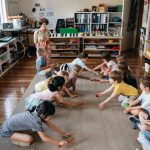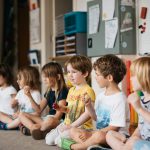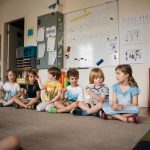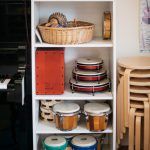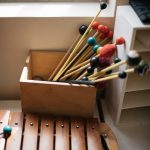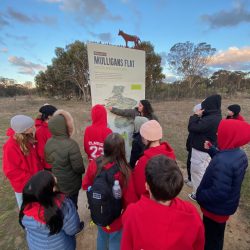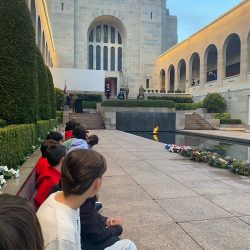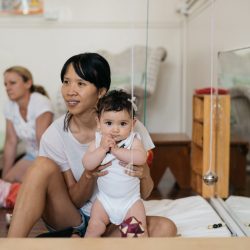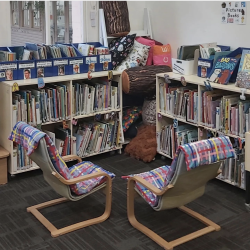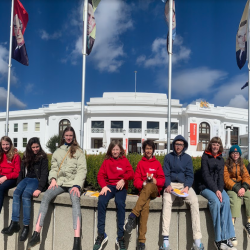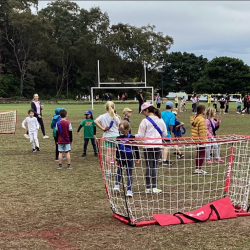Music
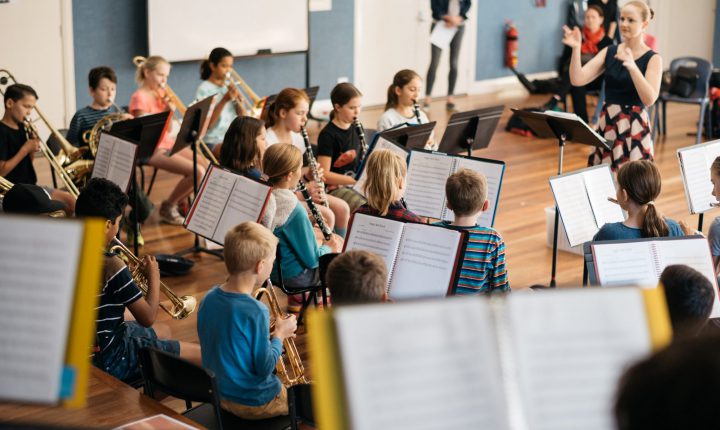
Music is great for young brains and exposure from an early age has proven benefits.
The Montessori music program develops the children’s nonverbal communication, increases their understanding and enjoyment of music, and enhances their ability to express themselves through music.
Stage 1 Extended Day (Kindergarten age), Stage 2 and 3 children have a weekly session with a Kodaly-trained music teacher who also co-ordinates the ISMS band and choir programs.
Kodaly Method
For children, making music is a joyous and playful activity incorporating the whole body and, most particularly, the voice.
The natural and spontaneous way that children make music intrigued the Hungarian composer Zoltan Kodaly and his colleagues during the last century. They undertook extensive research in this area and developed the program of music education that became known as the ‘Kodaly Method’ or philosophy which takes as its starting point the fact that the voice is the first and most fundamental musical instrument, available to everyone, and that music-making is an integral and essential part of the child’s life.
Using musical games that have always been an integral part of children’s play and playful activities with specific musical objectives, the children effortlessly absorb fundamental musical skills and learn to read, write and perform music with ease and confidence. The skills acquired are practised and reinforced using aural, visual and kinaesthetic activities, including the use of hand signs to give the abstract quality of pitch a concrete form. The aural work always precedes the notation in the same way that we learn language by first hearing it, then learning to speak it, and finally learning to read and write it. This approach is summed up by the expression, ‘sound before symbol’.
As the children’s skills increase, they are further extended with vocal and instrumental part-work as well as rhythmic co-ordination games, thus developing the ability to listen to, and perform, two or more musical activities at once. These are the skills they will employ when playing an instrument in a band or singing in a choir.
Improvisation and composition are introduced as extension work at all levels, giving the children the opportunity to combine the skill-based activities with the creative aspects of music-making.
The children are introduced to the great composers through listening and movement activities and children wanting to extend their knowledge of a particular composer, instrument or genre can follow this interest up with their own research in the classroom.
Formation dances, using a variety of folk music from around the world, are an integral part of the music program giving children a concrete understanding of form and beat, whilst developing co-operation, co-ordination and a sense of community.
Montessori Music Materials
The Montessori Tone Bars are used both as a tool for the theoretical learning and as a versatile musical instrument. Orff instruments (xylophones and metallophones) and percussion instruments are used with all ages for ensemble work and the recorder is introduced for the older Stage 2 children and continued into Stage 3.
The Montessori Grading Musical Bells are also present in the classrooms. They have been specifically designed to train the ear to perceive differences among musical sounds. The Montessori Bells consist of a series of bells that represent tones and semi-tones of one octave. To work with the bells the child is required to pair off the bells that produce the same sound. This enables the child to learn how to discriminate, eventually learning how to arrange the bells in graduation and to play the musical scale.
There are many music options available at ISMS and a large proportion of our children participate in one or more of our music offerings.
Co-curricular Band and Choir
A significant number of ISMS students participate in either the Training or Concert Band and/or our Junior or Senior Choir. Find out more here:

